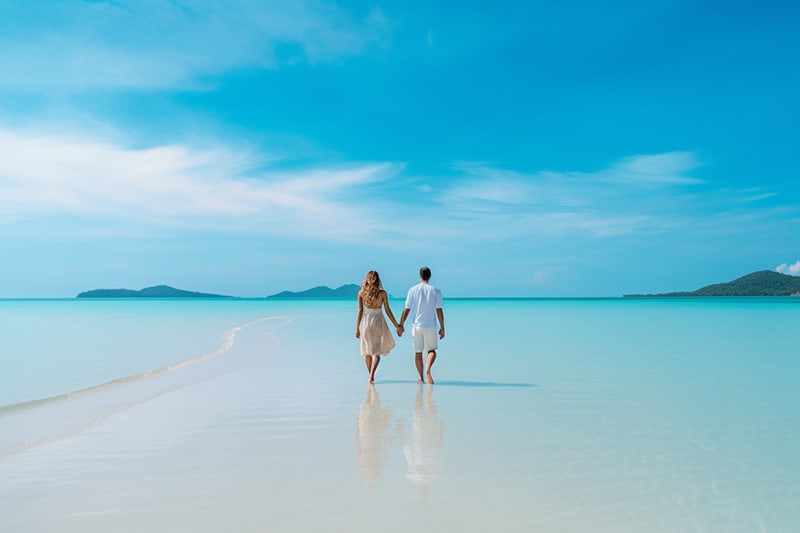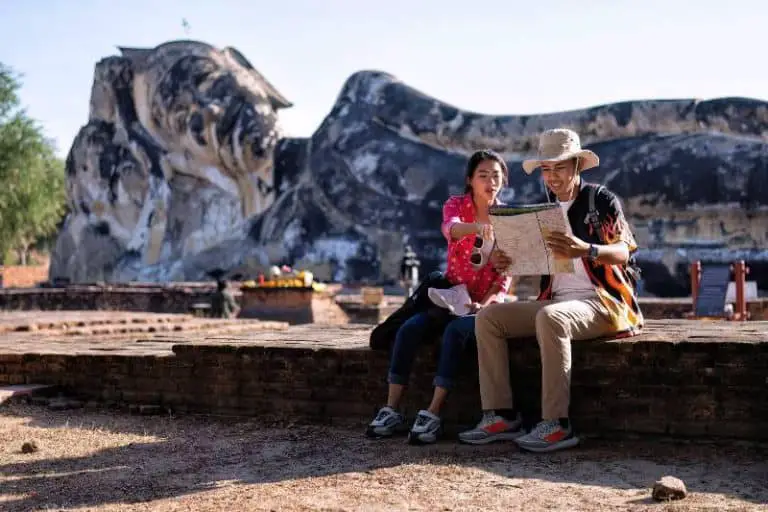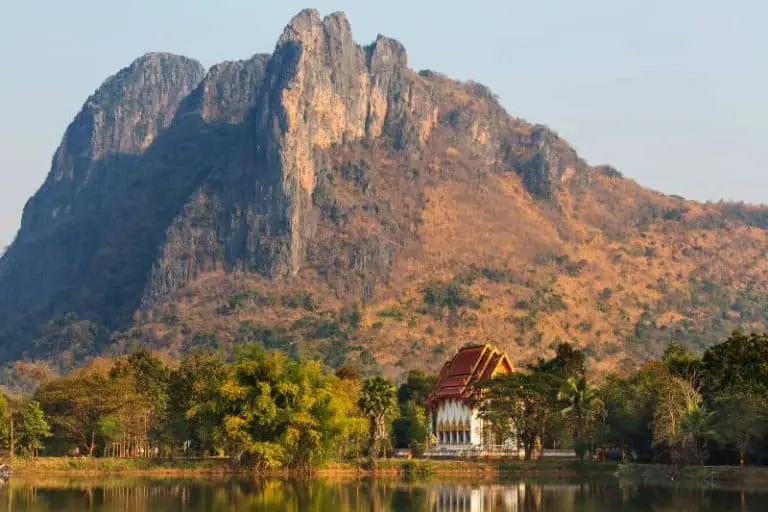Thailand Expat Living: Where Do You Belong?
Are you considering a move to Thailand as an expat? If so, the experience of living in this beautiful Southeast Asian country is sure to be a life-changing one! With its rice fields and tropical forests, stunning beaches, and bustling cities, Thailand offers many different lifestyles for ex-pats. To make your transition smoother, it’s important to understand where people live when they relocate to the Land of Smiles.
In this blog post, we’ll explore some tips on where best to set up a home as an expat in Thailand. We’ll share our insights into key aspects such as a bustling city vs countryside lifestyle preferences and budget considerations so that you know what sort of accommodation you should look at right away. Read on for all the information you need!
If you’re looking for a sea view, coastal areas can be pricier. When it comes to Thai locations popular with ex-pats, Chiang Mai, Koh Samui, and Bangkok top the list. Ekkamai is one of the most sought-after neighborhoods among expats who move to Bangkok.
Key Takeaways
- Thailand boasts a diverse array of locations that are popular with expatriates. These range from bustling urban centers to serene beach towns and cultural hotspots. The country’s welcoming culture, affordable living, and excellent infrastructure make it a preferred choice for individuals seeking an overseas base or retirement destination.
- The variety of lifestyle options in Thailand is vast. Whether you prefer the vibrant city life of Bangkok, the relaxed pace of a town like Chiang Rai, the beachside serenity of Surat Thani, the historic charm of Ayutthaya, or the authenticity of Phitsanulok, Thailand has something to cater to everyone’s preference.
- Thailand perfectly balances modernity with traditional culture. Even in the busiest cities, cultural traditions are upheld and valued. Conversely, even in more rural areas, modern amenities and infrastructures are available. This blend offers a unique lifestyle, combining the conveniences of modern living with the charm and richness of Thai culture.
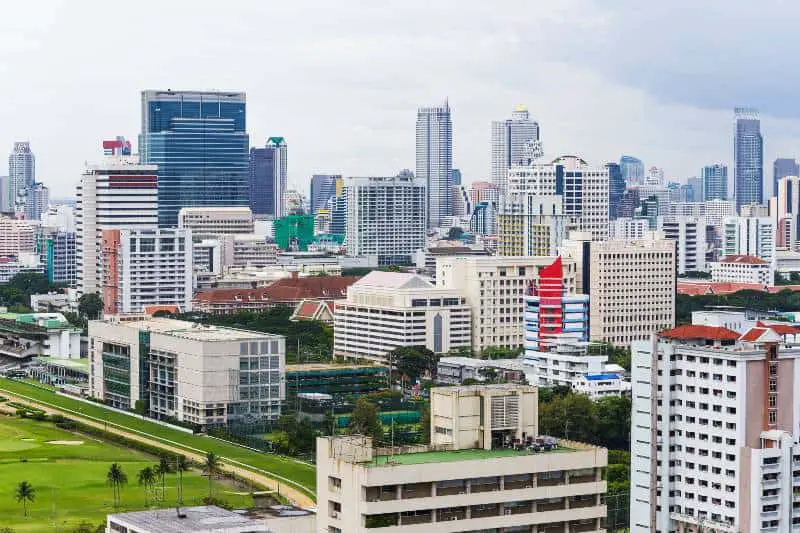
Bangkok
Bangkok, Thailand, The country’s capital, has a prominent global standing, consistently topping the MasterCard Global Destination Cities Index as the most visited city worldwide in 2012, 2013, and continuously from 2016 to 2018. Its bustling urban landscape juxtaposed with its proximity to Thailand’s idyllic beaches and mountains, as well as easy access to Southeast Asia, make it an irresistible hub for international expatriates.
The city of Bangkok is known by locals as “Krung Thep” or “Krung Thep Maha Nakhon”. Its official name, holding a Guinness World Record for being the longest city name with 168 letters, translates to “The city is known as the City of Angels, the Great City of Immortals, the Magnificent City of the Nine Gems, the Seat of the King, the City of Royal Palaces, and the Home of Gods Incarnate. It was erected by Vishvakarman at Indra’s behest.
Thailand itself, with a population surpassing 68 million, holds the 21st rank as the world’s most populous country. Correspondingly, Bangkok, as one of the most densely inhabited cities globally, had a recorded population of 10 million in 2018.
As per the 2010 census, the city’s core had 8.3 million residents spread across nearly 1,600 square kilometers, resulting in a density of 5,300 persons per square kilometer. However, if the broader metropolitan region is considered, the population swells to approximately 14.6 million, yielding a density of 1,900 persons per square kilometer. Thailand’s reputation as a favored destination for expatriates was reinforced by its 21st overall position in HSBC’s 2018 Expat Explorer Survey.
Experiencing Bangkok as a transient tourist versus immersing oneself in the day-to-day life of this vibrant metropolis, can be vastly different. Over the past few decades, Bangkok has unfailingly attracted a multitude of international residents, resulting in a diverse expatriate community.
Currently, this expatriate populace is primarily constituted by nationals from Asian countries, prominently Japan, South Korea, and China. Following closely are Europeans, Americans, and individuals from Africa. The city also hosts a growing contingent of migrant workers from neighboring nations, such as Cambodia, Laos, and Myanmar, bolstering its workforce. The city’s population experiences a significant influx during daytime hours, primarily attributed to workers commuting from provincial regions.
However, it is essential to note that foreigners seeking employment and a prolonged stay in Thailand are required to secure an appropriate work permit. This permit can be acquired from the Royal Thai Embassies or Royal Thai Consulates-General in their respective home countries. Specifically, the Non-Immigrant Visa (B) is necessitated for individuals intending to engage in business activities, invest, or work in Thailand. If you’re planning on traveling to Thailand, it’s important to get a visa.
For comprehensive details regarding visas, you can find all the information you need on the official website of the Ministry of Foreign Affairs of the Kingdom of Thailand. Once you have obtained your visa, you may want to consider applying for a work permit. If you’re wondering how to obtain a work permit, check out this informative article which details all the necessary steps.
Chiang Mai
Chiang Mai, renowned for centuries as a sought-after destination for tourists and expatriates, possesses a distinctive allure. Dotted with hundreds of glistening temples, an array of international eateries, picturesque countryside, and an abundance of outdoor activities, this Northern Thailand City caters to all tastes. Moreover, the city’s perpetually tropical climate amplifies its charm.
The city offers metropolitan luxuries at affordable prices. A wide range of budget-friendly quality rentals can be found in the city center, peripheral suburbs, and the surrounding rural regions. The city is home to numerous fresh markets offering local produce and an assortment of ready-to-eat meals starting at a mere $1.30. For those craving familiar tastes, imported goods can be found at the city’s substantial supermarkets. A burgeoning number of bakeries, providing a selection of sourdough, raisin, and multigrain breads, have found favor with the local expatriate community.
For shopping enthusiasts, Chiang Mai houses five modern malls, each featuring a state-of-the-art cineplex, with ticket prices as low as $3.30. Moreover, to accommodate the city’s evolving sophistication, online ticket booking is available. The shopping centers boast a blend of local stores and globally recognized brands, meeting most shopping needs.
Thailand’s stellar reputation for healthcare extends to Chiang Mai. A range of public and private hospitals staffed by competent, English-speaking medical professionals, many with Western training, offer their services at reasonable rates.
Chiang Mai offers diverse and convenient lifestyle choices for expatriates. Some opt for the fashionable Nimmanhemin Road, known for its high-end condominiums, chic eateries, designer boutiques, and popular bars. Others are drawn to the historic, walled city or the tranquility of the surrounding countryside, where they can cultivate personal gardens and enjoy panoramic mountain views.
Accessing other destinations from Chiang Mai is straightforward with the Chiang Mai International Airport, a short 10-minute drive from the city center, offering flights to various Asian destinations.
The city, a significant cultural and academic hub in Thailand, hosts numerous art exhibitions and cultural festivals throughout the year. The substantial expatriate community, numbering over 30,000, has established an active club that organizes monthly gatherings and coordinates a variety of interest groups.
While Chiang Mai lacks coastal access, a two-hour flight for under a hundred dollars can transport you to the country’s southern beaches.
Living comfortably in Chiang Mai is feasible on a modest monthly budget of $2,000, ensuring an affordable yet high-quality lifestyle.
Phuket
Phuket, Thailand’s largest island, is globally recognized as a premier beach destination. Famed for its spectacular coastline fringed with powdery, white-sand beaches, Phuket is a paradise for beach lovers. Encircled by the clear, turquoise waters of the Andaman Sea, the island’s beaches range from lively, tourist hotspots to tranquil, secluded hideaways.
In addition to the natural allure of its beaches, Phuket boasts a multitude of water sports and marine activities, including snorkeling, scuba diving, sailing, and surfing. Moreover, the island is dotted with high-end resorts, world-class restaurants, vibrant nightlife, and diverse shopping options, making it an irresistible destination for tourists seeking both relaxation and entertainment.
Living in Phuket comes with its unique blend of advantages and challenges. Among the pros are the island’s beautiful natural scenery, warm tropical climate, and relaxed lifestyle. The cost of living can be relatively low, particularly for those willing to adapt to local ways of life. Expatriates in Phuket enjoy access to excellent international schools, well-established healthcare facilities, and a diverse food scene.
On the downside, Phuket can be crowded, especially during the peak tourist season. Traffic congestion can also be a significant issue. The cost of living, while generally affordable, can increase significantly in more tourist-centric areas. While English is widely spoken in tourist areas and among service providers, there can be language barriers when interacting with local communities.
There are several popular neighborhoods in Phuket where expatriates tend to congregate:
- Patong: Known for its vibrant nightlife, Patong is popular among younger expatriates or those who enjoy a lively social scene.
- Kathu: Centrally located and close to international schools and shopping centers, Kathu is a favored spot for families.
- Chalong: Home to several boat marinas and popular among the yachting community, Chalong offers a mix of local Thai life and expat-friendly amenities.
- Rawai: A quieter area, Rawai is favored by many expats looking for a more authentic Thai lifestyle, with local markets, seafood restaurants, and a relaxed vibe.
- Bang Tao and Surin: Known for luxury resorts, these areas are popular among high-income expats, offering high-end properties, gourmet dining, and beautiful beaches.
Each neighborhood offers a unique lifestyle and community vibe, allowing expatriates to find a location that best suits their needs and preferences.
Pattaya
Located on the Gulf of Thailand, Pattaya is a vibrant coastal city renowned for its stunning beaches and bustling nightlife. It’s a dynamic mix of leisure and adventure activities, offering a wide range of experiences from sun-soaked days on the beach to thrilling water sports and exploration of nearby islands.
The city is particularly recognized for its lively entertainment scene, including a vast array of restaurants offering both Thai and international cuisines, numerous bars, nightclubs, and cabaret shows. Pattaya is also home to a plethora of shopping venues, from colorful local markets to high-end shopping malls, and cultural attractions, such as the Sanctuary of Truth and the Nong Nooch Tropical Garden.
Living in Pattaya comes with its unique set of advantages and disadvantages. One of the main pros is access to beautiful beaches and a wide range of leisure and entertainment options. Pattaya offers a relatively low cost of living, especially when compared to larger cities like Bangkok. There are high-quality international schools and reliable healthcare facilities available, making it suitable for families as well.
However, similar to other popular tourist destinations, Pattaya can get crowded, especially during high season. The city’s vibrant nightlife, while appealing to some, may not suit everyone’s lifestyle, particularly for those seeking a quieter, more laid-back living environment. Furthermore, traffic can be heavy at times, and while English is relatively widely spoken in tourist areas, language barriers might arise when dealing with local communities or authorities.
Pattaya offers a variety of neighborhoods that appeal to the expatriate community:
- Jomtien: This area is popular among ex-pats, particularly those with families, due to its quieter beaches, local amenities, and the presence of several international schools.
- Central Pattaya: Ideal for those who enjoy city living, Central Pattaya offers easy access to shopping malls, restaurants, and vibrant nightlife.
- Pratumnak Hill: Located between Pattaya and Jomtien, Pratumnak offers a quieter residential area with easy access to both city amenities and peaceful beaches.
- Naklua: North of Pattaya, Naklua offers a more local Thai atmosphere with less crowded beaches and seafood markets.
- East Pattaya: Also known as the “Darkside”, East Pattaya is a primarily residential area popular with long-term ex-pats. It offers more spacious homes and a slower pace of life, albeit with a bit longer commute to the city center.
Each area offers its own unique lifestyle and community, making Pattaya a versatile city that can cater to a wide range of preferences and needs for expatriates.
Hua Hin
Hua Hin, once a tranquil fishing village, has seen a remarkable transformation due to the steady rise in its expatriate population. It’s estimated that between 3,000 and 5,000 ex-pats now call this coastal city home, living among the local Thai population of approximately 80,000. With over a million tourists flocking to Hua Hin annually, it gives the impression of an even larger international community.
A significant number of retirees from Europe and England have chosen Hua Hin as their home away from home, while others have purchased second residences here. This influx has significantly enlivened the city, moving it beyond its roots as a quiet retreat predominantly for Bangkok’s locals. The growing international influence has brought a cosmopolitan flair to Hua Hin, adding layers of complexity to its character and appeal.
The city’s popularity amongst the Thai elite started in 1923 when the local railway station was completed, and this elite group began building their second homes here. A resurgence of interest occurred in the 1990s when condos became the preferred choice for investment. A notable influx of expatriates happened after the 2004 Andaman Sea tsunami, leading to an increased demand for upscale housing estates and luxury condos specifically catering to foreign buyers. Property prices span a broad spectrum, from an accessible $100,000 to well over a million dollars, reflecting the location and the various amenities on offer.
The growing population of ‘Farangs’ – a Thai term for foreigners – has driven a rise in services specifically tailored to meet their needs.
These services include foreign language newspapers, typically run by real estate agents, internet forums for Hua Hin residents, typically sponsored by real estate agents, as well as Italian, German and British delicatessens. English language radio stations have emerged, taking requests even by SMS, and local cable TV now offers news channels in languages ranging from English, German, Italian, French, Japanese, and Korean to Chinese.
A unique characteristic of Hua Hin is the striking presence of Scandinavians, either as tourists, wintering snowbirds, or permanent residents. The town is teeming with people from Sweden, Finland, Norway, and Denmark. The influence of these Nordic nations is so pronounced that, at times, one might mistake Hua Hin for a Scandinavian city, like Helsinki or Helsingborg. From Gravad Lax to Panbiff, Scandinavian culinary traditions have found their way onto local menus.
Scandinavian tour companies played a key role in the development of Hua Hin’s tourism industry in the early 1990s. They began offering vacation packages at newly opened hotels like the Melia (now the Hilton), which contributed to the Scandinavian influence on the area.
Other Expat-Friendly Locations
Thailand offers a rich diversity of locations for ex-pats, each with its unique cultural traits, lifestyle, and cost of living. Ranging from bustling metropolises to serene beach towns and cultural hotspots, this vibrant country has something to fit everyone’s preferences. Key locations popular with expats include Chiang Rai, Phitsanulok, Surat Thani, and Ayutthaya.
- Chiang Rai: Situated in the mountainous northern region, Chiang Rai is known for its relaxed lifestyle, beautiful landscapes, and distinctive Lanna culture. Its appeal lies in its cooler climate, historical sites, and slower pace of life, making it ideal for those looking for a peaceful retreat.
- Phitsanulok: Located in central Thailand, Phitsanulok is a city rich in history and culture. Its charm comes from its proximity to historical sites and national parks. This city offers a more authentic Thai lifestyle, far from the touristic crowds, yet providing all modern amenities.
- Surat Thani: Nestled in the southern region, Surat Thani acts as a gateway to popular islands like Koh Samui, Koh Phangan, and Koh Tao. It’s a perfect fit for ex-pats who love the beach life and yearn for close proximity to nature. The city itself is bustling with local markets and offers a true taste of southern Thai culture.
- Ayutthaya: An ancient city located in the central plains, Ayutthaya is famous for its historical ruins, a UNESCO World Heritage site. It provides an intriguing blend of the past and the present, with its historical sites juxtaposed with modern amenities. Its proximity to Bangkok makes it an appealing choice for ex-pats seeking a mix of city and cultural life.
Thailand is a diverse destination for expatriates with unique lifestyles available at each location. The selection depends on personal preferences, whether it’s city living, beachside living, immersing in culture and history, or the peacefulness of the mountains.
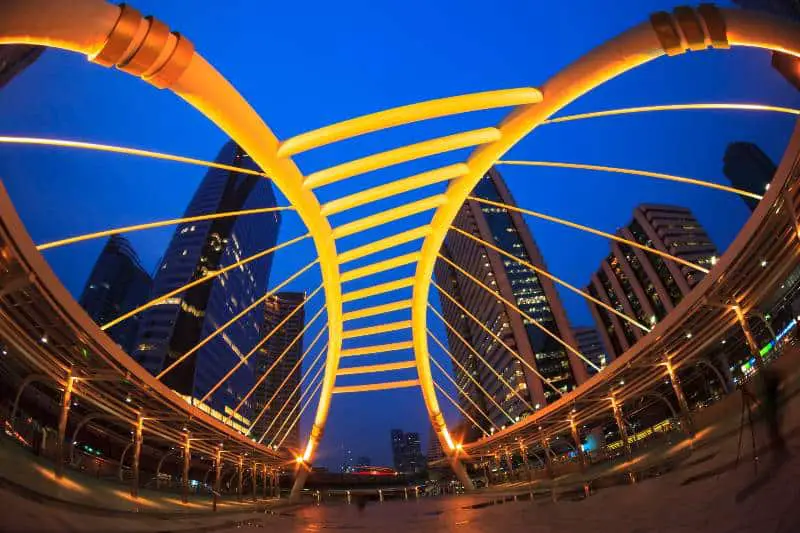
Where Do Expats Live In Thailand FAQs
What are the advantages and disadvantages of living in Pattaya as an expat?
Living in Pattaya as an expat has its advantages and disadvantages. The main advantage is the affordability of living costs compared to other cities in Thailand such as Bangkok. Additionally, there are numerous activities available suited to different interests – from nightlife to golf courses, shopping malls, and more. On the other hand, the city can be quite chaotic with its high number of tourists and traffic jams.
Is Hua Hin a suitable retirement destination for ex-pats?
Yes, Hua Hin is a suitable retirement destination for ex-pats due to its low cost of living and modern amenities. Additionally, it has a large international population which makes it easier for expats to adjust to life in Thailand and feel more at home. There are also plenty of activities available ranging from golf courses to water parks, modern shopping malls, beaches, and more.
Are there other expat-friendly locations in Thailand besides the mentioned cities?
Yes, there are other expat-friendly locations in Thailand such as Chiang Mai, Udon Thani, Krabi, and Ko Samui. Each of these cities has its own unique attractions and characteristics that make them appealing to expats. For instance, Chiang Mai offers a slower pace of life with plenty of cultural activities, Udon Thani is known for its modern amenities and nightlife, Krabi offers stunning beaches and a relaxed atmosphere, and Ko Samui has become a popular destination thanks to its beautiful landscapes and resorts. All of these cities have their own unique appeal to expats looking for a different lifestyle in Thailand.
How do I choose the right location in Thailand as an expat?
Choosing the right location in Thailand as an ex-pat depends on personal preferences and lifestyle. Consider factors such as cost of living, climate, access to amenities, cultural attractions, available activities, and proximity to friends or family. Additionally, research the city’s expat-friendly features such as international schools, hospitals with multilingual staff, transportation options, and more. Once you have a clear idea of your lifestyle needs, you can narrow down the list of potential locations and make an informed decision on where to settle in Thailand.
What factors should I consider when deciding where to live in Thailand?
When deciding where to live in Thailand, consider factors such as cost of living, climate, access to amenities, cultural attractions, and available activities. Additionally, research the city’s expat-friendly features such as international schools, hospitals with multilingual staff, transportation options, and more. Furthermore, consider whether you want to be close to friends or family and whether you want to be in a rural or an urban setting. All of these factors can help you determine which location best suits your lifestyle needs.
Conclusion
To all the ex-pats living in Thailand, welcome to this amazing tropical paradise! A home where you can explore and experience colorful Thai culture, stunning beaches, gorgeous islands, and plenty of other activities. Not only is there much to explore, but also much to learn while adapting to a new way of life. Living in Thailand offers an opportunity to live a life that is both meaningful and fun, giving visitors a memorable experience while allowing locals a chance to embrace global cultures.
The possibilities for what expats can do in Thailand are infinite. So why hesitate? Find out where you want to stay today so you can start your unforgettable journey of living the good life in the Land of Smiles! Don’t forget to subscribe to our newsletter for more information about living in Thailand if you haven’t done it yet. We look forward to helping you make your dreams come true in this beautiful country and wish you a wonderful journey ahead!
